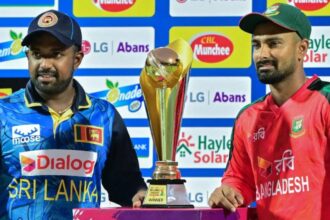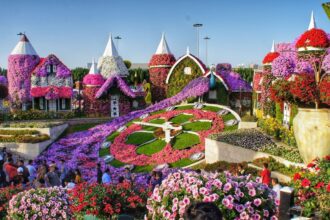In the vast and sun-scorched deserts of the United Arab Emirates, where sand dunes stretch endlessly across the horizon and settlements lie far from the bright lights of city hospitals, a different kind of medical story is unfolding. Here, in the remote pockets of the nation, dedicated UAE physicians are working tirelessly to ensure that healthcare is not a privilege reserved for urban centers—but a fundamental right for all.
These doctors—often traveling long distances, enduring extreme heat, and adapting to limited resources—are the unsung heroes of the country’s healthcare system. Whether stationed in a remote clinic or delivering care via mobile medical units, they form the backbone of healthcare delivery in the nation’s rural heartlands.
This article explores the challenges, innovations, and quiet triumphs of the UAE’s medical professionals who serve remote and often overlooked communities. Their journey is one of resilience, service, and unwavering commitment.
The Landscape of Remote Healthcare in the UAE
The UAE’s geography is as diverse as its population. While cities like Abu Dhabi, Dubai, and Sharjah boast some of the world’s most modern hospitals, a significant portion of the country includes rural villages, mountain hamlets, and isolated desert camps. These regions are often home to Emirati Bedouins, labor workers in energy fields, or agricultural families who maintain deep cultural ties to the land.
In these far-flung areas, access to healthcare can be a real challenge. Some communities are located hundreds of kilometers from the nearest tertiary care center. During sandstorms or periods of high heat, travel can become difficult or even impossible. This is where the role of rural physicians becomes critical.
Mobile Clinics: Bringing Medicine to the People
To overcome geographic barriers, the UAE has deployed mobile medical units equipped with basic diagnostic tools, essential medications, and trained medical staff. These clinics-on-wheels travel to remote communities on scheduled routes, offering preventive screenings, vaccinations, and routine check-ups.
Doctors assigned to these units often work in rotating shifts, covering large distances across deserts and mountains. For many patients, this mobile service is their only point of access to healthcare.
Physicians in these units emphasize education just as much as treatment—teaching patients about diabetes management, proper hydration in extreme heat, maternal care, and hygiene practices. In areas where misconceptions and traditional healing still influence behavior, these sessions are crucial to building trust and driving healthier outcomes.
Women’s Health in Isolated Regions
Women in rural UAE communities often face cultural and logistical barriers in accessing healthcare. A lack of female doctors, long travel distances, and limited health literacy can prevent timely care—especially during pregnancy or in the early years of motherhood.
To address this, special maternal and child health units have been deployed with female physicians and nurses trained in obstetrics, gynecology, and pediatrics. These professionals are not only medical experts but also cultural navigators—respecting local traditions while gently introducing evidence-based practices.
One physician working in the Al Dhafra region shared how she assisted a Bedouin mother through a high-risk pregnancy by providing weekly in-person monitoring and remote consultation with specialists in Abu Dhabi. The child was safely delivered in a desert clinic thanks to timely intervention, careful planning, and trust built over months.
Emergency Response in the Wilderness
Medical emergencies in remote areas require fast and coordinated action. Given the distances involved, response time is a critical factor. To reduce delays, the UAE has invested in air ambulance services, desert-ready ambulances, and training local responders in basic life-saving skills.
Still, the first medical professional on the scene is often a rural physician based at a satellite clinic. These doctors are trained to stabilize patients—whether it’s trauma from accidents, cardiac arrests, or severe dehydration—before evacuating them to a city hospital.
In one remarkable instance, a general practitioner stationed in Liwa used satellite communications to coordinate an emergency evacuation for a heatstroke victim. The patient was flown to a critical care unit in under 90 minutes—highlighting how technology and human readiness combine to save lives in remote UAE.
Telemedicine: Connecting the Disconnected
One of the most transformative tools in rural healthcare has been telemedicine. Using high-speed internet and secure communication platforms, doctors in remote areas can consult with specialists in urban hospitals, review imaging scans, and even conduct remote diagnostics in real-time.
This is especially vital in cases where a rural physician encounters an unfamiliar or complex condition. Through video calls and digital sharing of patient files, they can instantly receive second opinions and guidance.
Additionally, telemedicine has allowed ongoing management of chronic diseases such as hypertension, asthma, and diabetes, reducing the need for patients to travel frequently. The success of these initiatives has encouraged the expansion of virtual care platforms tailored for non-urban settings.
Health Education and Cultural Integration
Doctors in remote UAE communities play dual roles: medical caregivers and educators. In places where cultural traditions, religious beliefs, and generational habits shape health choices, providing care goes hand-in-hand with building awareness.
These physicians often conduct workshops in schools, mosques, and community centers—offering basic health education, nutrition advice, and first-aid training. Visual aids and culturally sensitive language are used to communicate important messages effectively.
In one mountain village, a family physician launched a nutrition program that replaced processed food staples with traditional but healthier alternatives. Over six months, the village saw a marked drop in childhood obesity rates and improved attendance at local schools.
Serving Labor Camps and Migrant Workers
The UAE’s remote areas are not only home to native populations but also to thousands of migrant workers involved in construction, agriculture, and oil extraction. Many of these individuals live in camps where access to regular healthcare is limited.
Doctors assigned to labor zones often work under challenging conditions—long hours, language barriers, and high patient loads. Yet they remain committed to offering dignified and equitable care. Health issues ranging from musculoskeletal injuries to mental health concerns are addressed through on-site clinics.
Occupational health is another critical focus. Physicians conduct regular screenings for respiratory issues, heat exhaustion, and workplace injuries, while also educating employers on improving worker welfare. Their presence ensures that even the most isolated workers are not invisible to the healthcare system.
Pediatric Outreach and Vaccination Drives
Children in remote communities are especially vulnerable to vaccine-preventable diseases, nutritional deficiencies, and delayed growth. Recognizing this, doctors often lead seasonal outreach programs focused on pediatric health.
These campaigns involve immunization drives, vision and hearing screenings, dental checkups, and anemia testing. Pediatricians also work closely with schools and community elders to encourage attendance and parental involvement.
In one desert district, doctors succeeded in raising vaccination rates to 98% by deploying culturally fluent female nurses and holding community celebration days tied to immunization milestones. Such efforts demonstrate the power of combining medicine with local engagement.
Mental Health Services: Breaking the Silence
Mental health is still a sensitive subject in many conservative or rural communities. Feelings of isolation, stress, and depression are often left unspoken. However, doctors serving in remote areas have started to bridge this gap.
By offering private consultations, mobile therapy sessions, and group support activities, rural physicians are helping people confront psychological challenges. They also train local leaders—such as teachers and religious figures—to recognize signs of mental distress and refer individuals discreetly.
Recently, a pilot project in a desert community provided digital tablets with guided mindfulness exercises in Arabic. Used in clinics and homes, the initiative significantly reduced reported symptoms of anxiety and stress in women and adolescents.
Training the Next Generation of Desert Doctors
To sustain these initiatives, the UAE is investing in specialized training for physicians who wish to serve in rural settings. Residency programs now include rural medicine rotations, and incentives are provided for doctors who choose long-term service in remote areas.
Doctors are taught to be resourceful, culturally aware, and adaptable. Their skill set includes emergency care, primary medicine, obstetrics, pediatrics, and even public health planning. Many doctors also pursue dual certifications in public health and rural medicine.
By fostering a generation of physicians committed to underserved communities, the UAE is building a system that is not only advanced but inclusive.
A Profession Built on Purpose
The challenges of rural healthcare are numerous—scarce equipment, harsh environments, language differences, and emotional fatigue. But the doctors who serve in these regions are driven by purpose.
They speak often of the deep bonds formed with families, the satisfaction of delivering care where it is needed most, and the pride in being part of a larger national mission.
One physician summed it up beautifully: “In the city, patients come to you. In the desert, you go to the people. That journey—it teaches you humility, courage, and what it truly means to serve.”
Conclusion: Guardians of the Sands
The UAE’s healthcare story is often told through gleaming hospitals and robotic surgeries. But in the quiet stretches of desert and mountain, another story is being written—one of grit, compassion, and unwavering service.
These “Desert Guardians”—UAE’s rural physicians—are redefining what healthcare looks like for remote communities. By combining tradition with innovation, empathy with expertise, they are ensuring that no patient is left behind—regardless of geography, income, or circumstance.
As the nation moves forward in its pursuit of excellence, these doctors stand as a powerful reminder: that the heart of medicine is not found only in machines or skyscrapers—but in the healing hands that reach out across dunes, borders, and beliefs.








